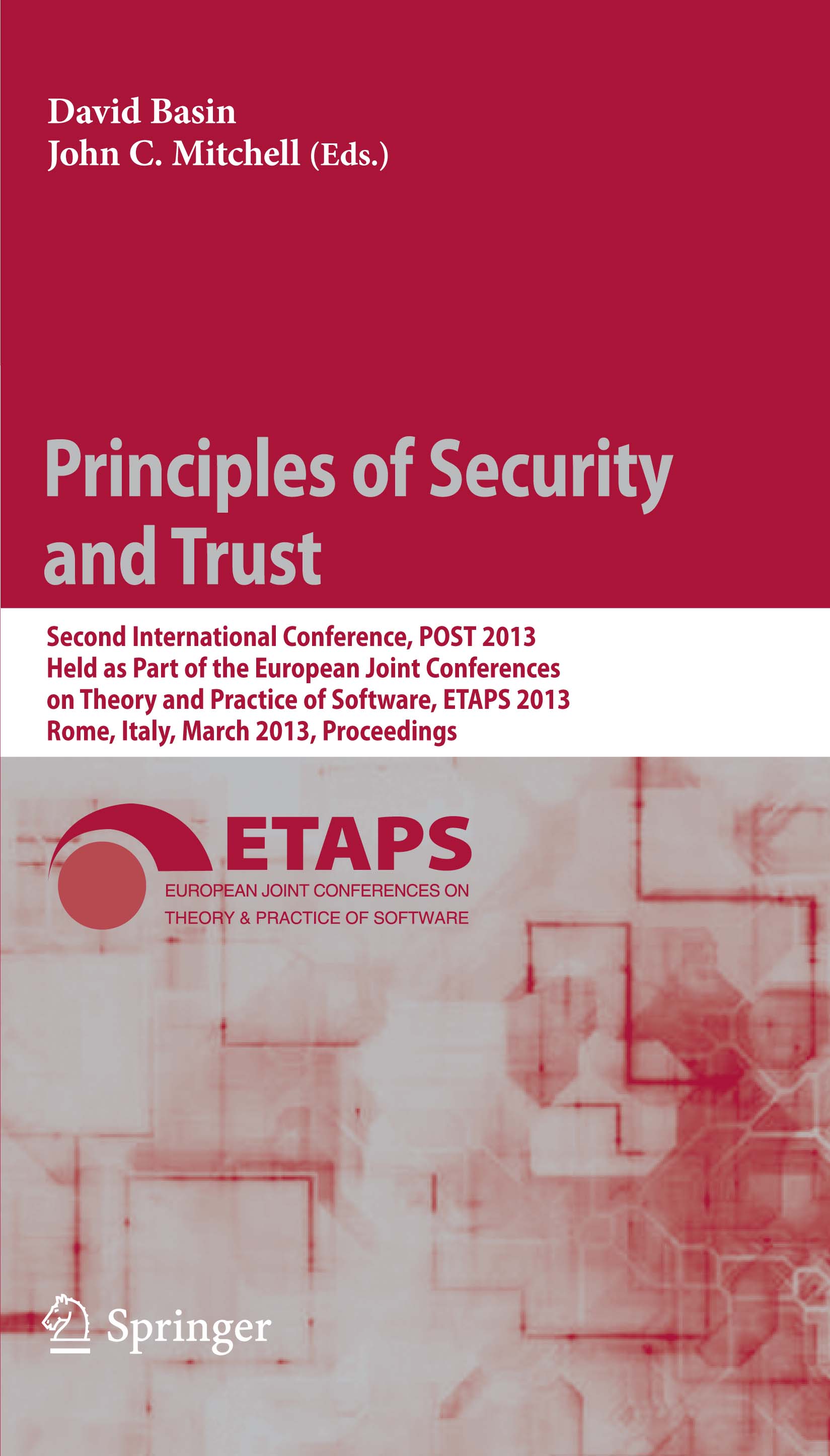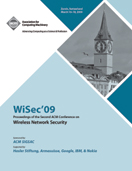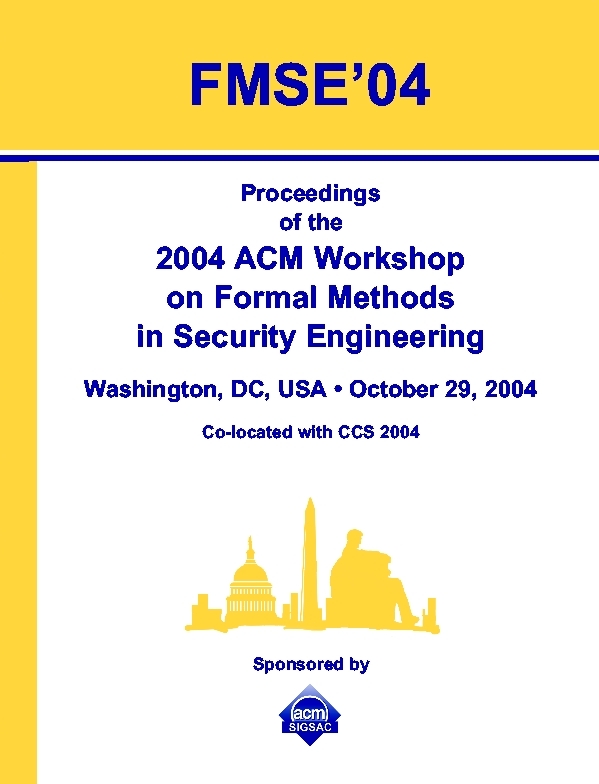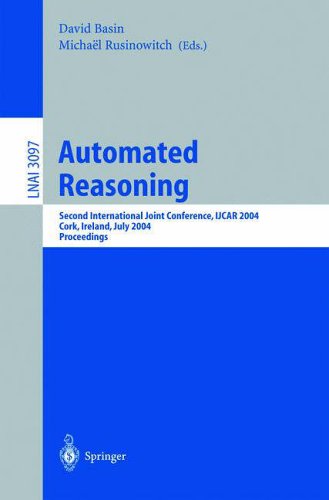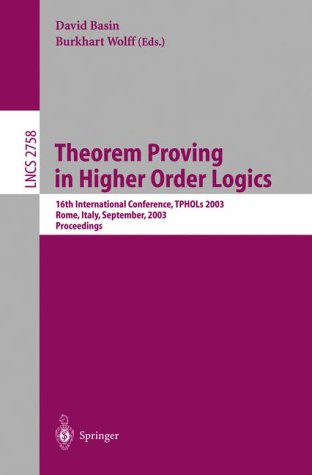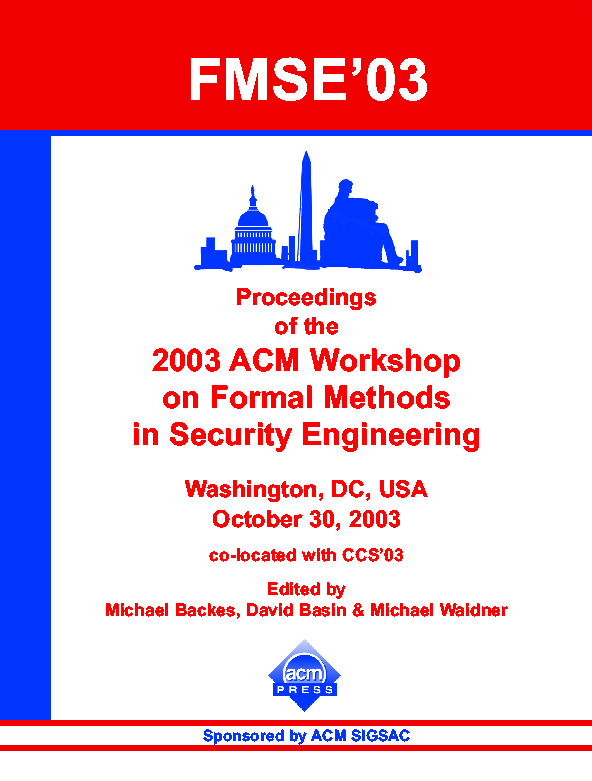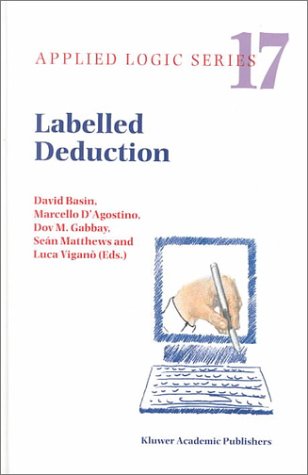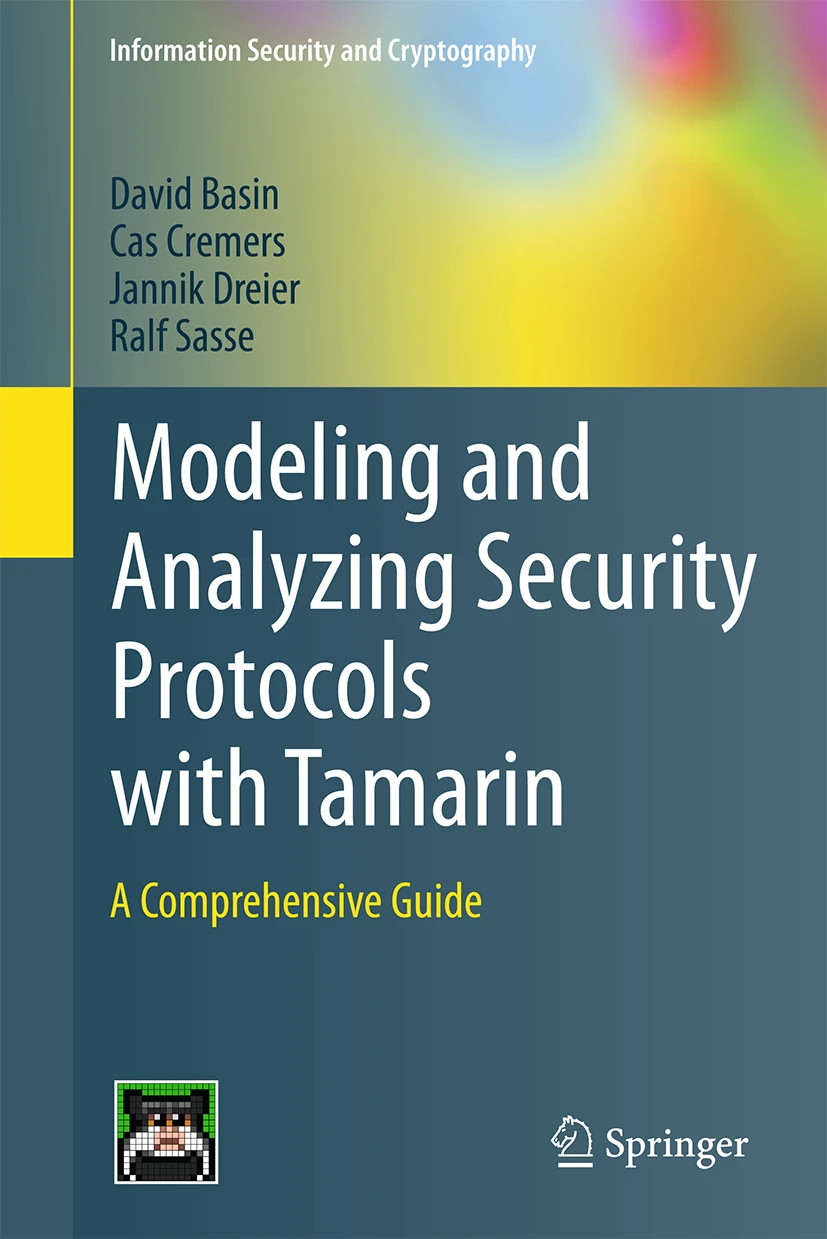 |
Modeling and Analying Security Protocols with Tamarin. Springer Verlag, 2025. |
 |
The Complete Guide to SCION: From Design Principles to Formal Verification.
Springer Verlag, 2022. |
| Applied Information Security --- A Hands-on Approach. Springer Verlag, 2011. |
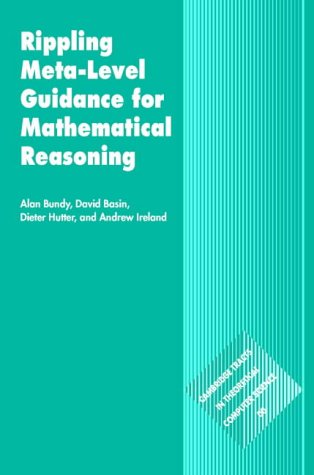 |
Rippling: Meta-level Guidance for Mathematical Reasoning. Cambridge Tracts in Theoretical Computer Science, No. 56, June 2005. |
